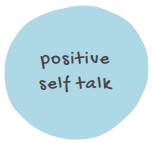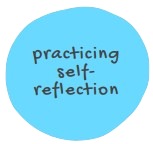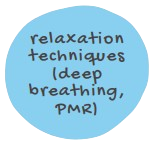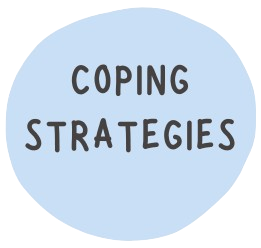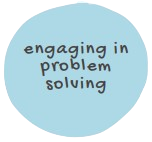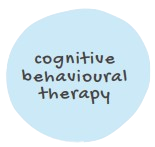Stress Management
-
Understanding Stress
-
Body response When you are Stressed
-
Causes of Stress
-
Personal Problems
-
Social Issues
-
Symptoms of Stress
-
Acute & Chronic Stress
-
Coping Strategies
-
Coping Responses
-
How to Reduce & Manage Stress
-
Quiz
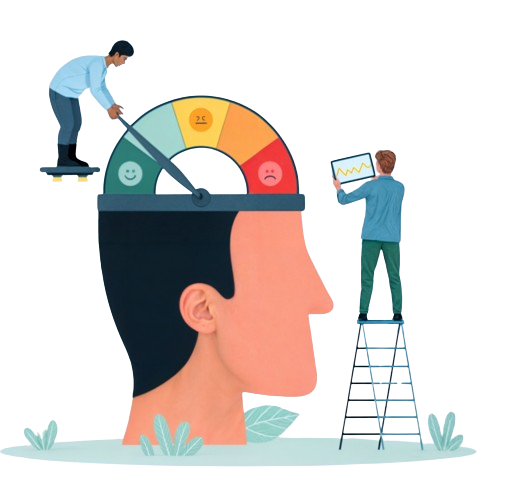
Stress Management
UNDERSTANDING STRESS
Reference: Goldstein DS. Adrenal responses to stress. Cell Mol Neurobiol. 2010;30(8):1433-40. doi:10.1007/s10571-010-9606-9


BODY RESPONSE WHEN YOU ARE STRESSED:

WHAT IS FIGHT OR FLIGHT RESPONSE?
The fight-or-flight response, also known as the acute stress response, refers to the physiological response that occurs when we encounter something mentally or physically frightening. This response is caused by the release of hormones that prepare the body to either stay and confront the threat or flee to safety. The three stages of fight-or-flight are:
- The alarm stage: During this stage, the central nervous system is ramped up, preparing your body to fight or flee.
- The resistance stage: This is the stage in which the body attempts to normalize and recover from the initial elevated fight-or-flight response.
- The exhaustion stage: If the first two stages occur repeatedly over time, such as when under chronic stress, this can cause the body to feel exhausted and begin to break down.
Stress causes the release of the stress hormone cortisol, as well as adrenaline, which affects blood pressure, heart rate, eating habits, sleep patterns, blood sugar levels, fat metabolism, and the ability to fight disease. Prolonged stress can also increase the risk of heart attack or stroke and contribute to depression.
Reference: Epping-Jordan JE, Harris R, Brown FL, Carswell K, Foley C, García-Moreno C, Kogan C, van Ommeren M. Self-Help Plus (SH+):
a new WHO stress management package. World Psychiatry. 2016 Oct;15(3):295-6.

Causes of Stress
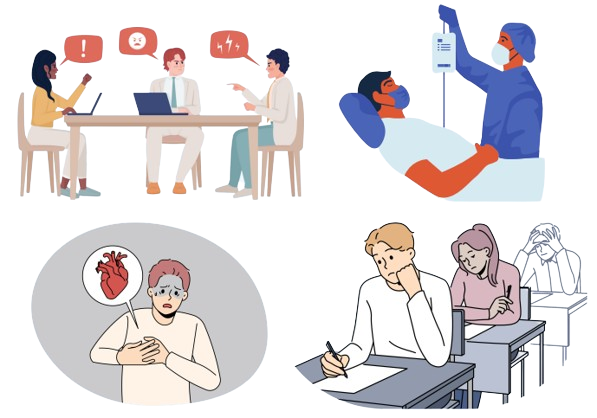

Symptoms of Stress
Fast Heartbeat
Headache
Back pain
Stiff neck
Heavy breathing
Sweating
Nausea

Crankiness
Frustration
Tired
Feeling lost
Can not concentrate
Sweating
Constant worrying



STRESS DEPENDS ON MANY THINGS, SUCH AS:
- Your personality.
- What you have learned from your family about coping with stress.
- How you think about and handle stress.
- Your coping strategies.
- Your social support system
https://www.verywellmind.com/chronic-stress-3145104


STRESS CAN AFFECT YOU BOTH INSTANTLY
(ACUTE STRESS) AND OVER TIME (CHRONIC STRESS).
Chronic (long-term) stress results from stressful situations or events that last for an extended period. This may include having a difficult job t or battling a chronic illness. If you already have health problems stress , can make them worse.
https://www.healthline.com/health/stress/acute-vs-chronic-stress



https://positivepsychology.com/cope-with-stress/
POSITIVE AND NEGATIVE

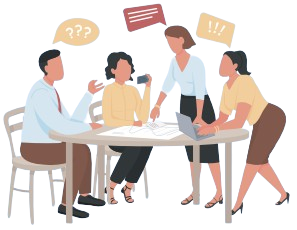


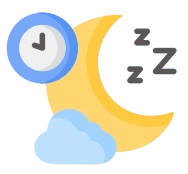
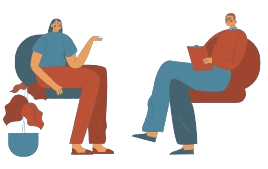


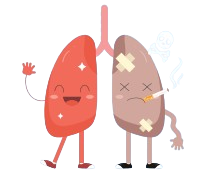
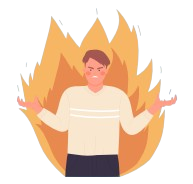

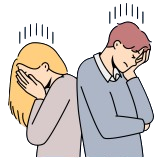


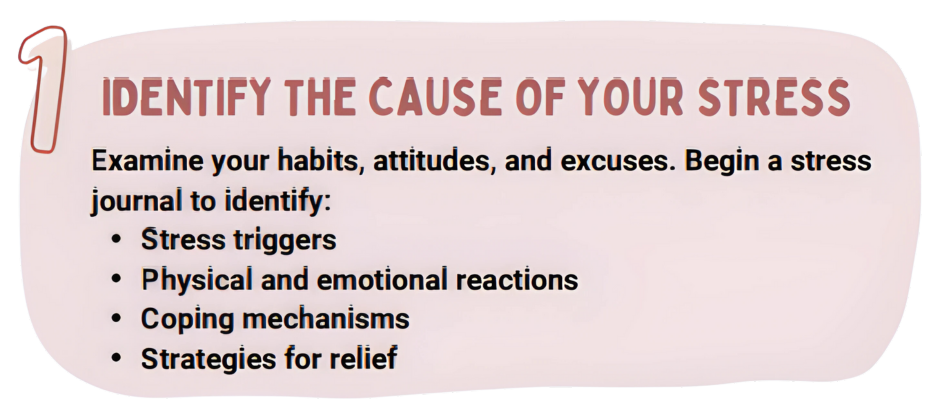
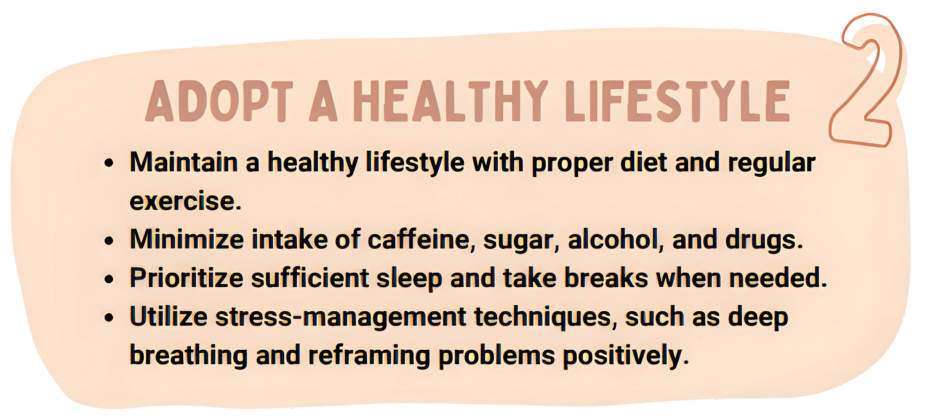
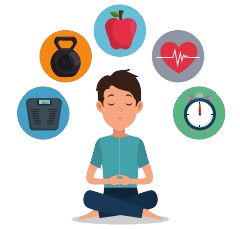
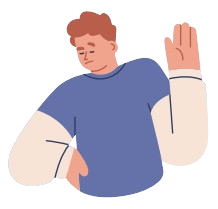
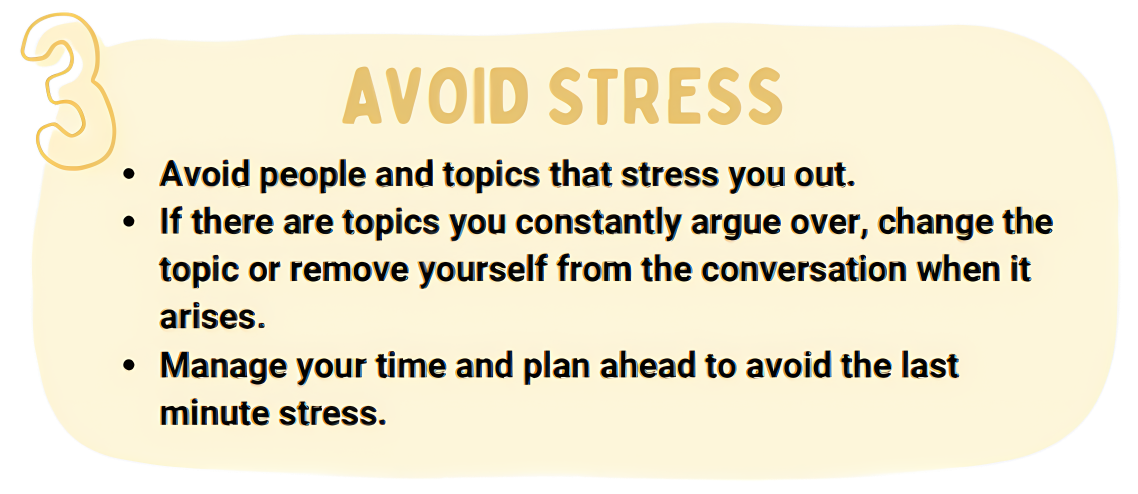
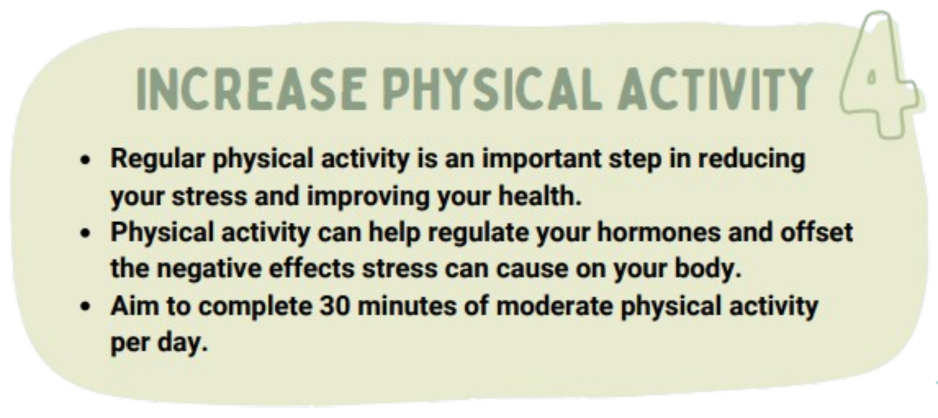
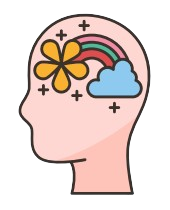
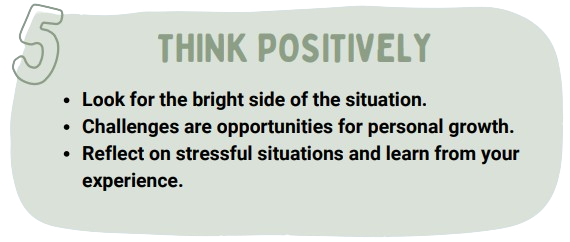
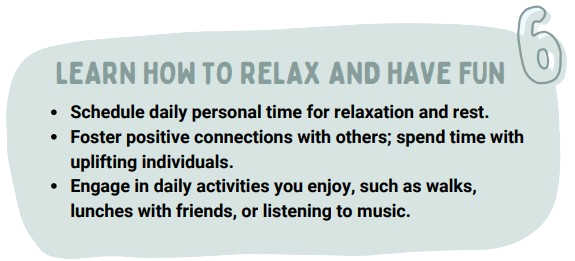
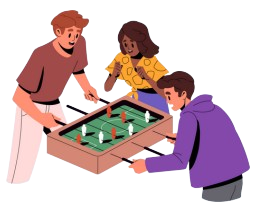

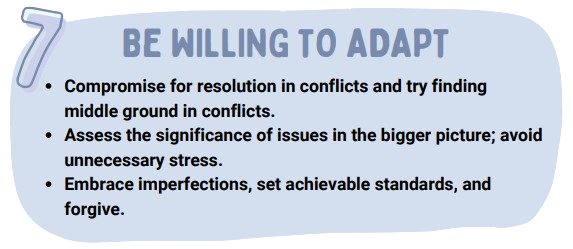
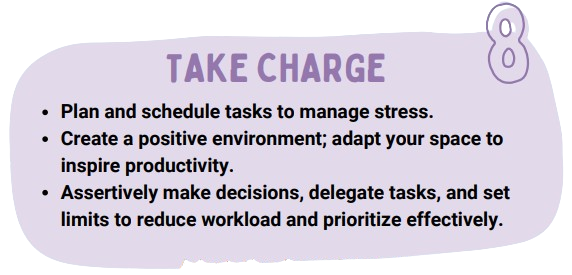

END OF MODULE QUIZ
Quiz Question 1: How does stress affect thoughts and emotions?
- a) Enhances concentration
- b) Promotes relaxation
- c) Causes short-term memory loss
- d) Makes you feel jumpy or tired
Quiz Question 2: What is a panic attack, and why might it occur?
- a) A relaxing experience
- b) A sudden, intense fear or anxiety with physical symptoms
- c) A common reaction to joy
- d) An indication of optimal mental health
Quiz Question 3: Which is a recommended strategy for reducing stress?
- a) Increase caffeine intake
- b) Engage in negative self-talk
- c) Limit physical activity
- d) Practice deep breathing and adopt a healthy lifestyle
Quiz Question 4: What is a negative coping response to stress?
- a) Listening to music
- b) Going out with a friend
- c) Smoking or chewing tobacco
- d) Practicing deep breathing
Quiz Question 5: What is a positive coping response to stress?
- a) Criticizing yourself (negative self-talk)
- b) Exercising or getting outdoors
- c) Drinking alcohol
- d) Avoiding family and friends
Explanation: Engaging in activities like exercising or getting outdoors is a positive coping response to stress. These actions keep you in the present moment and provide opportunities to actively work toward solving
problems.











